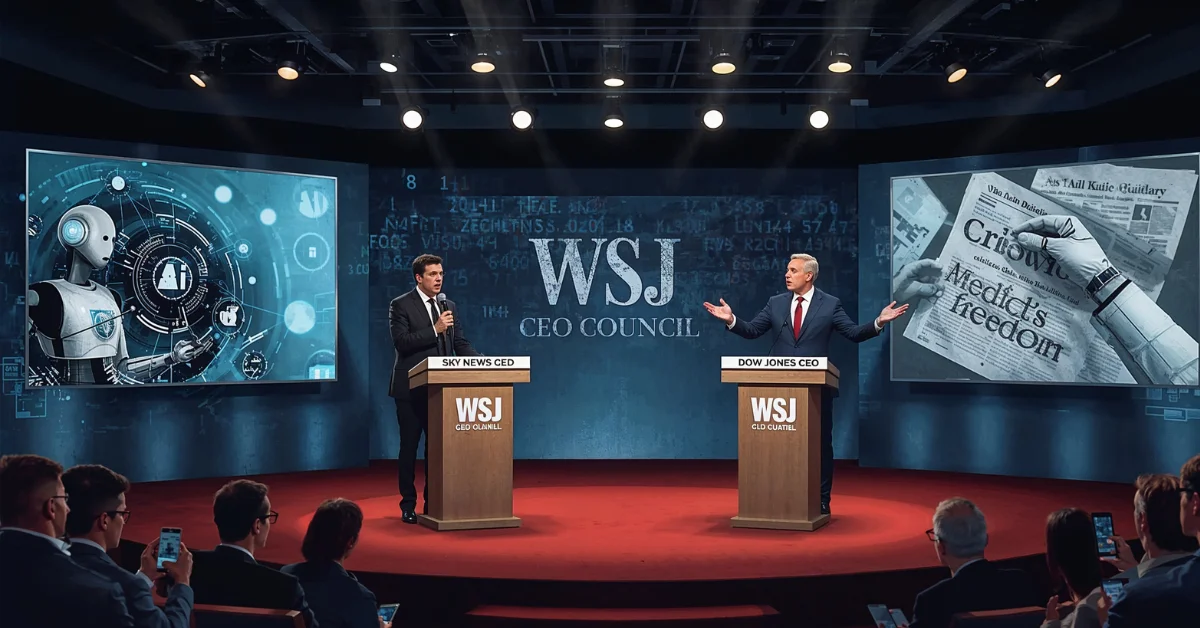In a charged session at the Wall Street Journal CEO Council Summit under the theme “Media, Machines, and Mayhem: Truth as a Competitive Advantage,” top media executives clashed over the future of journalism in the AI era.
Almar Latour, the CEO of Dow Jones, was sharply criticized by Sky News CEO David Rhodes for allegedly using the term “AI thugs” while discussing Big Tech’s impact in the media. Rhodes condemned the phrasing as inflammatory warning that it unjustly taints the entire media sector and undermines public trust in journalism.
Responding, Latour defended the remark as a passion-driven metaphor reflecting his concern about tech platforms exploiting AI without properly valuing journalistic content. He emphasized Dow Jones’ commitment to securing fair compensation from AI partners through a multimillion-dollar licensing deal with OpenAI and legal action against Perplexity to ensure that their proprietary journalism and data aren’t used free of charge.
Latour, whose rise from WSJ reporter to Dow Jones CEO has been well documented, laid out a strategic vision focused on:
- Depth: Strengthening exclusive journalism and proprietary data highlighting recent acquisition of Oxford Analytica.
- Breadth: Expanding coverage into energy, compliance, geopolitics, and more.
- Integration: Building verticals (e.g., risk, energy) with news, data, analytics, and convening power to create end-to-end industry solutions.
He described generative AI as a powerful “accelerant” for this model, enabling faster growth into new verticals and better cross-product insights provided Dow Jones supplies reliable, proprietary content that stands above generic AI answers.
Both Rhodes and Latour agreed on a key concern: the erosion of credible journalism. Latour spoke out forcefully about global threats to press freedom citing imprisoned reporters (like WSJ’s Evan Gershkovich in Russia), government pressure, and polarization. He urged media companies to “stick to your principles,” maintain editorial independence, and resist self-censorship in the face of political or commercial pressures.
- For the public: It’s a reminder that the struggle over information integrity in the AI age goes beyond technological hype it’s about who controls the narrative.
- For media companies: Rhodes and Latour’s exchange spotlights a critical pivot: negotiate licensing deals with AI, but also double down on journalism quality to maintain credibility and revenue.
- For AI platform users: As tools like ChatGPT and Gemini proliferate, this debate shapes how trustable and valuable AI-generated information will become and whether publishers will receive fair compensation.
The Sky‑Dow Jones confrontation highlights a turning point in the media ecosystem. As generative AI reshapes content distribution, top newsrooms are pivoting from fear to strategy securing licensing deals, launching proprietary data-driven verticals, and reinforcing press freedom rather than simply criticizing tech giants.



